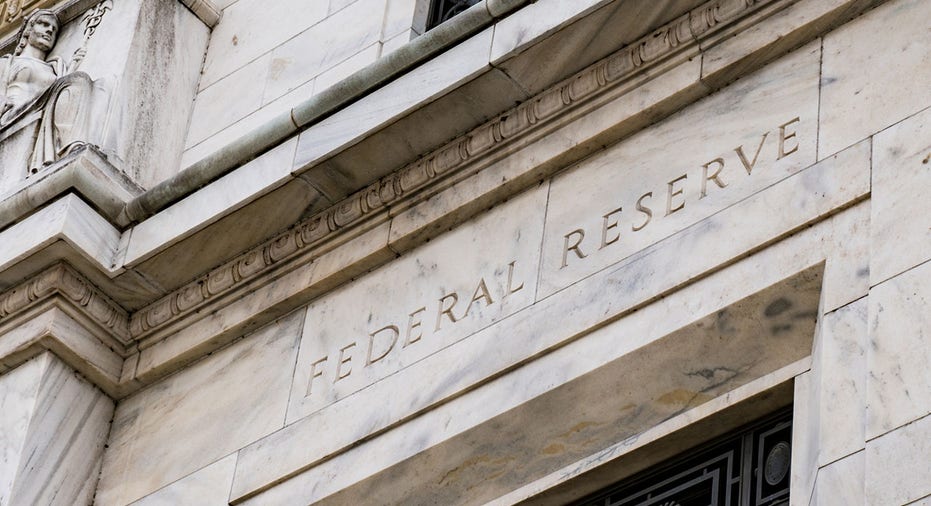Fed Chair Powell says inflation surge will be temporary: Here's what it means for interest rates

Federal Reserve Chairman Powell confirmed the plan to begin tapering asset purchases by later this year. (iStock)
Federal Reserve Chairman Jerome Powell confirmed confirmed Friday the central bank will begin tapering its economic stimulus this year as the economy continues to recover from the COVID-19 pandemic.
Powell said at last month’s Federal Open Market Committee (FOMC) meeting that while inflation is currently high, he expected that increase to be temporary. He stated the Fed will continue to look for a long-term 2% inflation level, and that letting it run high could allow inflation to meet that goal.
Since that meeting, the economy has seen "more progress in the form of a strong employment report for July, but also the further spread of the Delta variant," Powell said in his prepared remarks at the Kansas City Fed’s virtual symposium Friday.
With the central bank ending its stimulus, interest rates could begin to rise. If you want to take advantage of low rates before they increase later this year, visit Credible to see your options. By refinancing your home loan, you can save up to hundreds of dollars on your monthly payment.
FREDDIE MAC: ECONOMIC RECOVERY, COVID 'TUG-OF-WAR' KEEP MORTGAGE RATES STEADY FOR 3RD STRAIGHT WEEK
Powell: Inflation surge will be temporary
Powell explained in his speech that experience shows the Fed should not attempt to offset a temporary rise in inflation. He is still looking for improvement toward maximum employment before he will consider a rate hike. However, the pace of asset purchases is still to be determined.
"Indeed, responding may do more harm than good, particularly in an era where policy rates are much closer to the effective lower bound even in good times," he said. "Today, with substantial slack remaining in the labor market and the pandemic continuing, such a mistake could be particularly harmful," he said.
That’s due to the fact it may take up to a year for Fed financial coverage to have an effect on the economy. But once the tapering does begin later this year, interest rates will start to rise. They will increase even more once the Federal Reserve raises the federal funds rate. If you want to take advantage of low rates before they increase, consider refinancing your student loan amid historically low interest rates. Visit Credible to get pre-approved in minutes without affecting your credit score.
HOW STUDENT LOAN DEBT GREW TO $1.6T AND WHAT CAN DEBTHOLDERS DO TO REDUCE THEIRS
How the Fed decisions move interest rates
When economic shutdowns in 2020 forced a slowdown to the market, the Federal Reserve dropped the federal funds rate to 0%, and began putting extra stimulus into the economy. It did this by buying $120 billion in monthly bond purchases in Treasury and mortgage securities. The extra bond buying puts more money into the economy, creating a stimulus.
Now, the Fed is looking to reverse course as it begins to see substantial progress in incoming data. It will begin to buy fewer bonds and put less money into the economy as evolving risks slow. As investors react to this action, interest rates will rise. The Federal Reserve could make an announcement on the pace of the coming reduction as early as its September meeting, or at least by November.
The next step will be the Federal Reserve will start increasing rates once again, indirectly affecting rates. Interest rates on home loans, student loans, personal loans or even credit cards follow the direction of Treasury yields. When the Fed moves the federal funds rate up or down, other interest rates will follow.
The Fed has increasingly talked about raising rates as soon as 2022, barring a downturn to the further spread of the delta variant. If you want to take out a personal loan or other lending product while interest rates are low, visit Credible to speak to a loan expert and get all of your questions answered.
GDP REVISED UP FOR Q2 TO 6.6%: WHAT THAT MEANS FOR INTEREST RATES
Have a finance-related question, but don't know who to ask? Email The Credible Money Expert at moneyexpert@credible.com and your question might be answered by Credible in our Money Expert column.




















